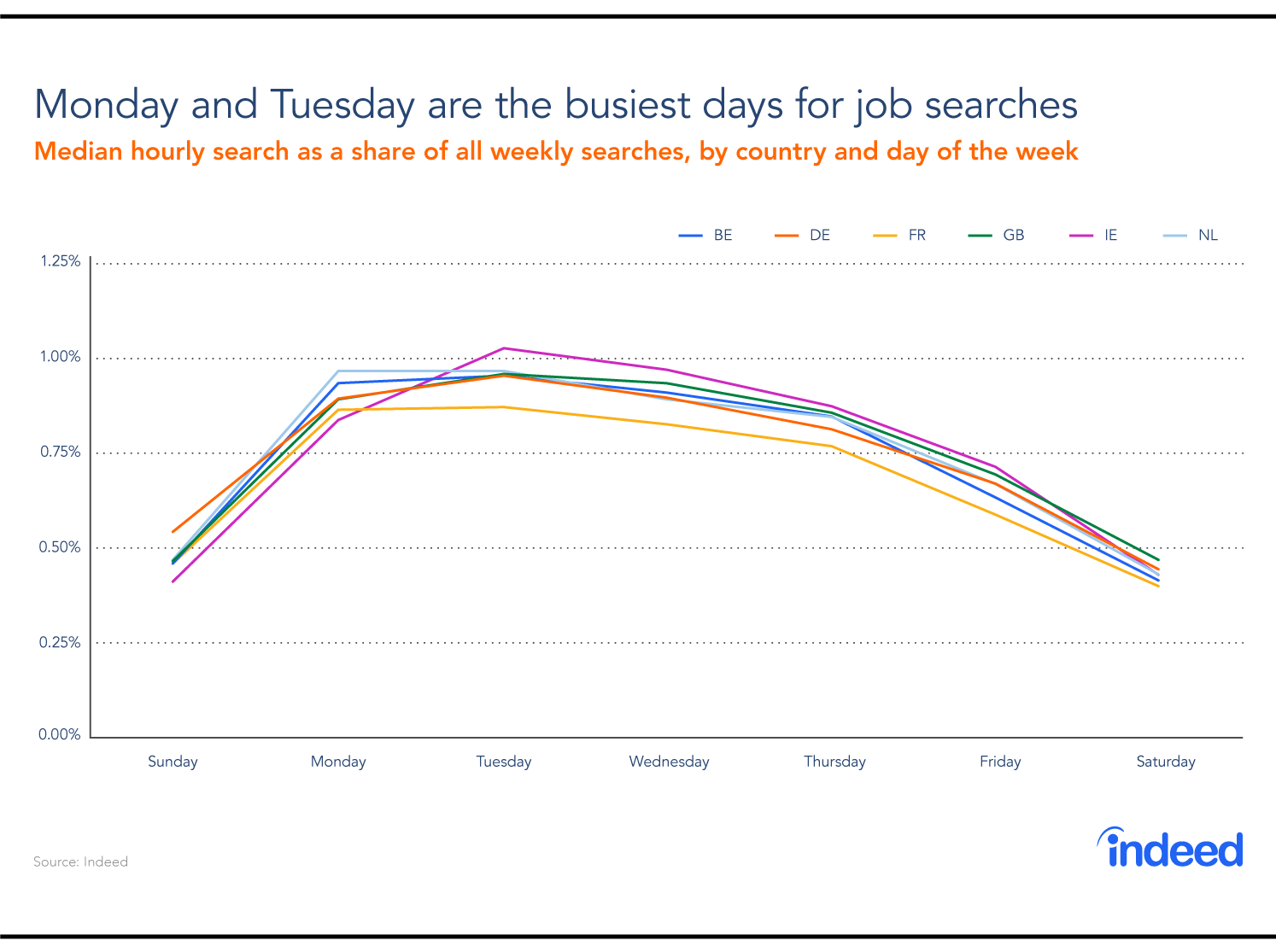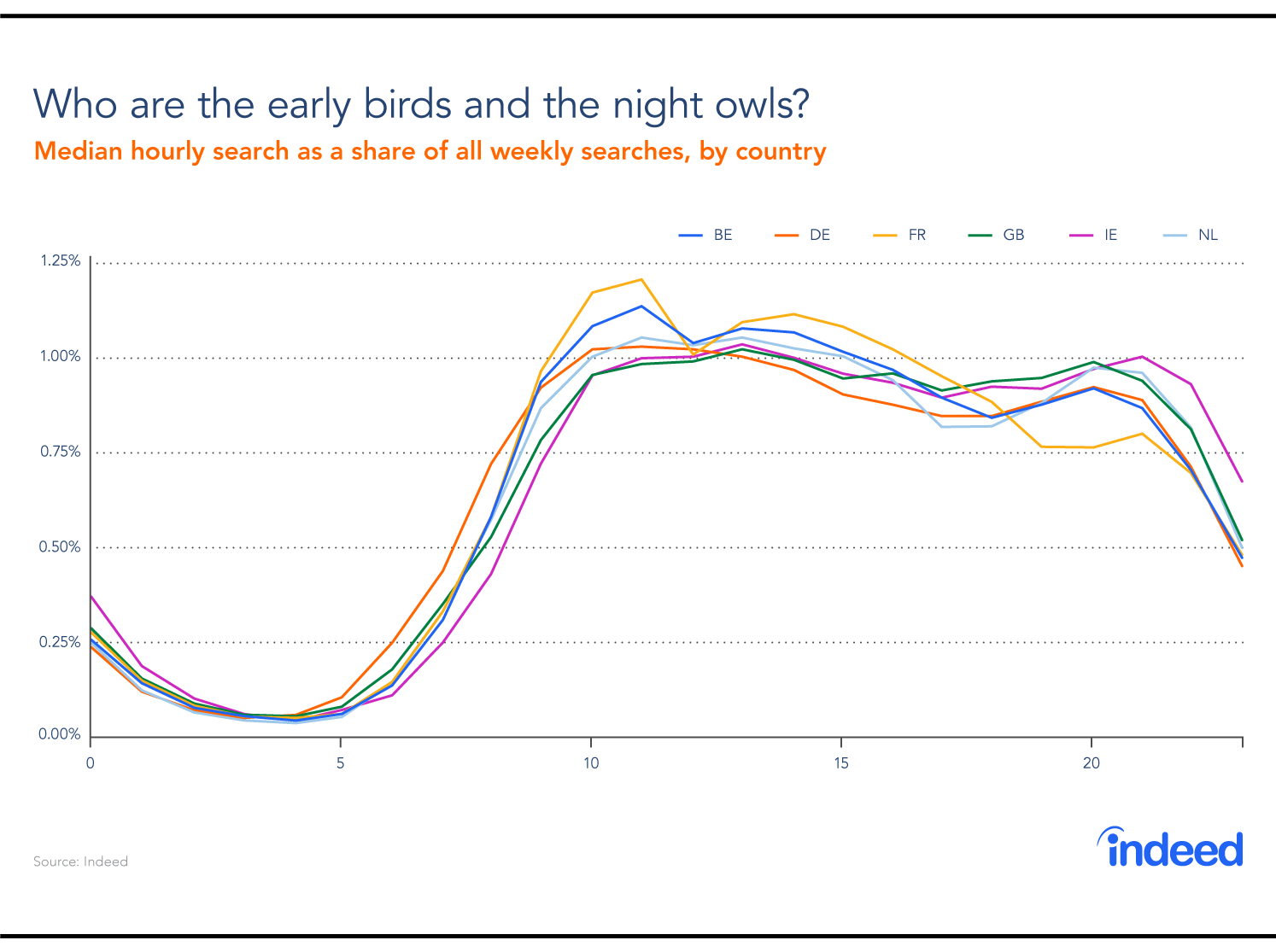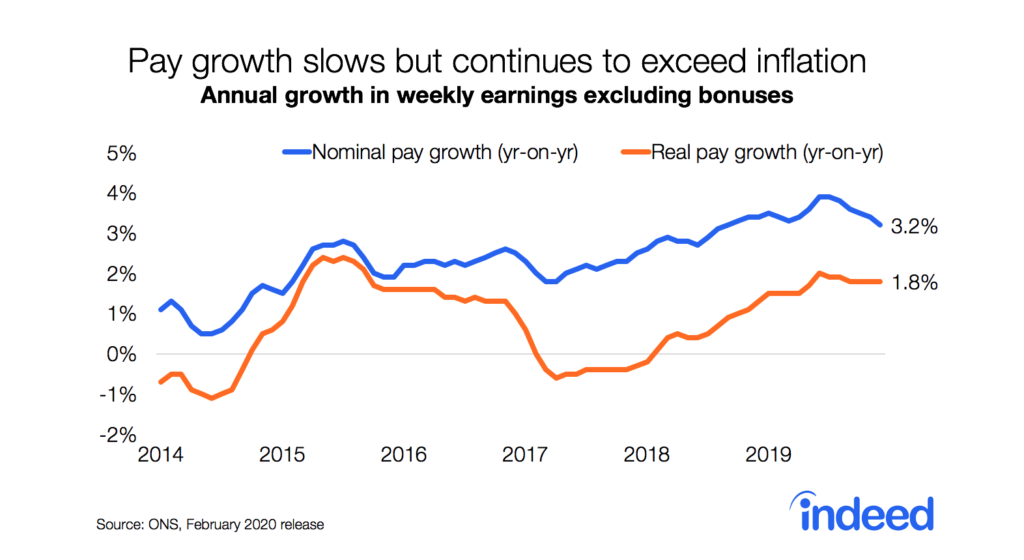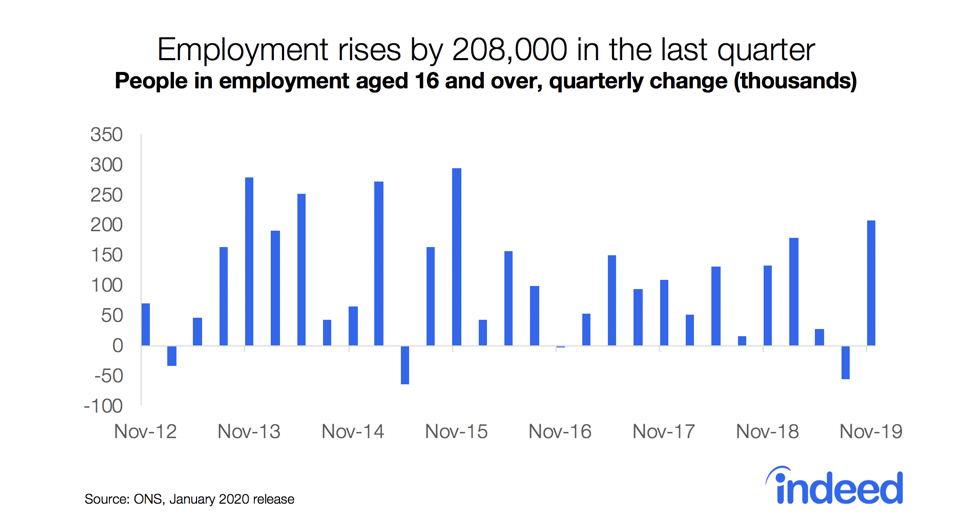We often hear about Germans being on time, the French savoring a two-hour lunch and the Brits taking their tea at 5pm without fail. Of course, these are stereotypes based on exaggeration and generalization, but they sometimes contain kernels of truth. And, clichés aside, timing matters—in business, in sports, in politics and in the hiring process. Across Europe, differences in habits and behavior are real regarding when people look for work.
In most European countries, employers face rising competition for talent, so it’s important that job notices reach the widest possible audience. Posting a job at the right time just might improve your chances of making a great hire.
What do we know about when job seekers are actively searching? What times and on which days of the week are German, French, British and other European job seekers looking?
Indeed is in a unique position to answer these questions thanks to the enormous trove of data on our site. Indeed attracts over 200 million unique visitors per month from over 60 countries. By mining this data, we are able to determine the timing of job searches and how search patterns vary across countries.
To get a clearer picture of Europe’s hourly and daily job-hunting routine, we examined searches conducted in 2016 on our websites in Belgium, France, Germany, the United Kingdom, Ireland and the Netherlands. We limited our analysis to people located in the country where they were looking for a job. Here’s what we found:
- Job searches peak at 11am in Belgium, France and Germany, and at 1pm in Ireland, the UK and the Netherlands. Searches track lower during commuting hours and then pick up after dinnertime, and are highest Monday through Wednesday. The peak hour for the entire week is Monday 11am-2pm. Interestingly, job searches in the US peak at a similar time on Tuesday, one day later.
- Germans start their job searches earlier in the day than anybody else, while the French, Belgians and Irish are the latecomers. The Irish are particularly busy searching on Tuesdays.
- Job seekers tend to take the weekend off. Searches are low from Thursday evening through most of the weekend. But, by Sunday evening, with the workweek looming, searches pick up again. However, the French are contrarians. They are the least active on weekends, especially Sunday evenings.
- The British, the Dutch and the Irish are much more active on weekday evenings, while the Belgians and the French take the longest lunchtime job search breaks.
Interestingly, no clear lunchtime break can be detected in German, British and Irish job search traffic. However, whether those job seekers skip lunch altogether or eat while browsing for work is uncertain.
Job search peaks early in the week

The beginning of the week is when job seekers are busiest looking for employment. In most of the countries we looked at, Monday and Tuesday are almost equally bustling. In Britain and Ireland though, job seekers show a stronger preference for Tuesdays. If you’re an employer advertising a job, keep in mind that Monday and Tuesday morning postings reach the widest audience of job seekers.
Germans start earlier, while the Irish take it easy in the mornings

It sounds like a cliché: When it comes to job search, Germans start earlier in the day than people in any other country we looked at. On the other hand, French, Belgian, and especially Irish job seekers are the late ones. We don’t know if it’s lingering over croissants and café au lait or the damp Irish mornings that keeps these job seekers from getting an early start, but the data show that people from these countries take a while to get cracking. At the same time though, the Irish, as well as the Dutch and the Brits, keep at it until later in the evenings. So that bloke at the end of the bar poring over his laptop may not be cruising Instagram—he just may be looking for work.
From Berlin to Dublin, job search timing matters
In food, fashion and more, each European nation is distinct, and the same is true when it comes to job search timing. To be sure, the differences from one country to another are not extreme. But these varying national job search habits and behaviors are meaningful. Understanding them might be an important part of a successful recruiting strategy.
Methodology
This blog examines 2016 job search traffic on Indeed’s Belgian, German, French, British, Irish and Dutch websites. We only considered searches associated with IP addresses located within the borders of each country. To ensure accuracy of job search time of day, the data were adjusted for time zones of the country the job seeker’s IP address was located in. The data were also adjusted for daylight savings time.
The year’s job searches were segmented by hour and day of the week. To determine how popular different hours or days of the week were for searching, we calculated each hour’s and day’s share of total searches for that week. To condense an entire year of job search activity into one representative week, we calculated the median share of weekly job searches over the year.






